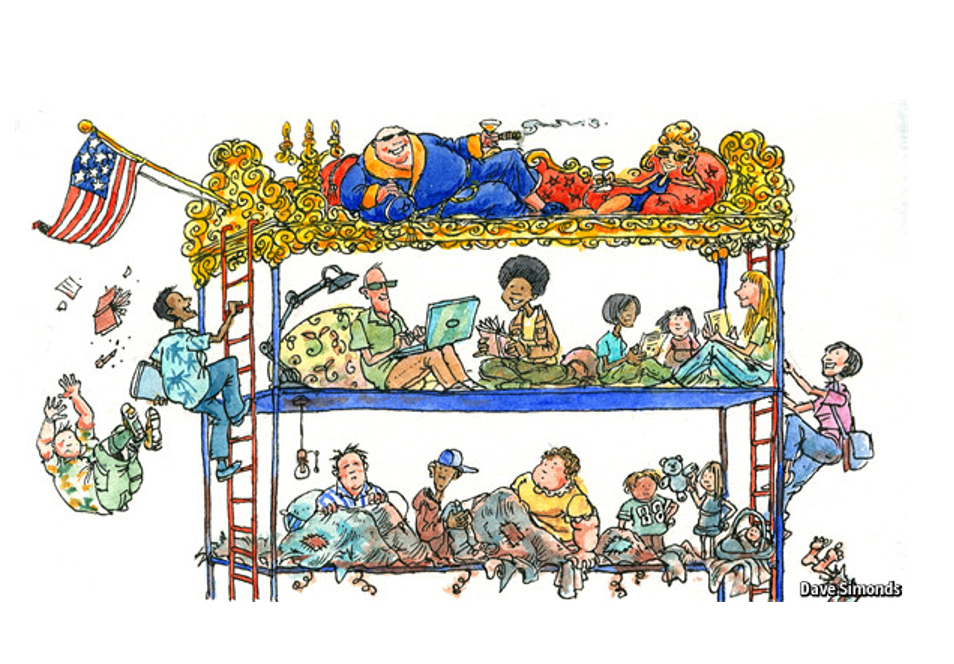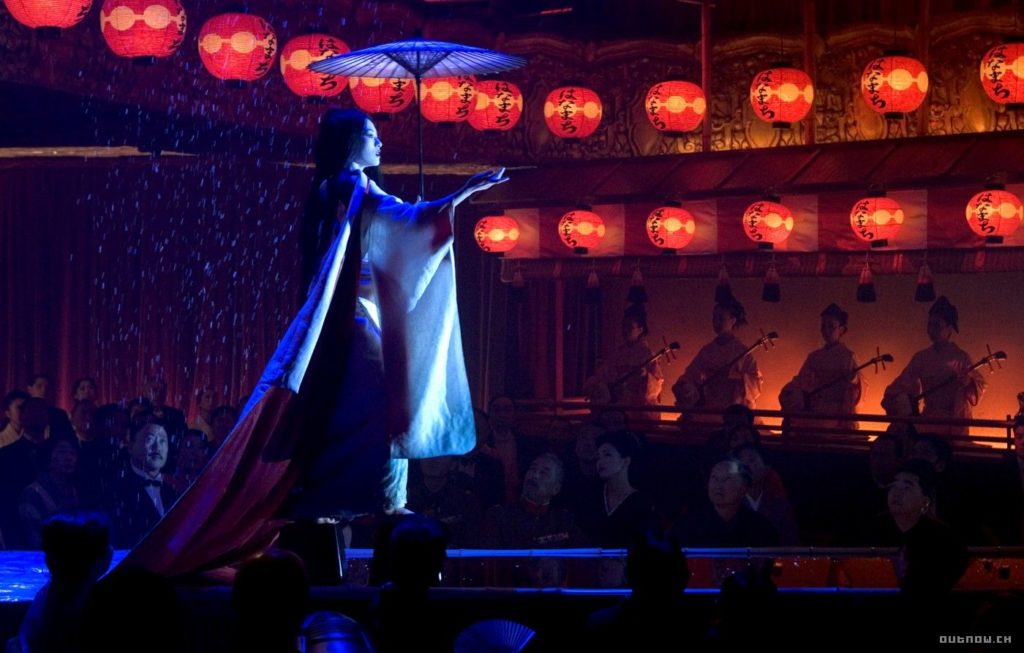
Not everyone we meet in our lives will see and appreciate what we bring to the table. This lack of recognition hurts most in connections that matter most to us, like a boss or a significant other. It’s only natural for us to yearn for acceptance and belonging, but we can’t always control how others measure our worth. Given this reality, you need to learn how to embody the confidence of having an unshakable sense of value even when someone doesn’t see your value. Learn how to accomplish this and use it to enhance your presence and contributions to the world. (Estimated reading time: 7 minutes)
“If someone doesn’t appreciate your presence, make them appreciate your absence.”
— Unknown
There are times in our lives when someone won’t see our value. For reasons unknown to us, they won’t acknowledge all the gifts, talents, heart, and ambition that we bring to the table.
This lack of recognition tends to hurt most in situations where it really matters, like a boss or co-worker not noticing all the hours you put into making a project successful, or your significant other not appreciating everything you do to keep your home clean and well put together.
Depending on your tolerance level, you’ll reach a point where you’ll get tired of not being taken seriously. Know that you are not alone and that most people will react the same way. It’s only natural to yearn for acceptance and belonging.
Most people make the mistake of burying their resentment and letting it stew, often for years. Like all unpleasant emotions, it’s important that you don’t ignore them as they can damage your self-esteem. Instead, feel into it and figure out what’s really happening.
You are valuable by virtue of being alive, and no one has to remind you of that. You just need to see, believe, and embody it, then shape your environment so that it serves your growth and enhances your presence on the world stage.
The power structures in the world: understanding what drives value

Becoming a person of value in the eyes of the masses ultimately comes down to where we feature in the power structures in our society.
Traditionally, we place a high value on financially successful individuals and those with other coveted qualities like status, beauty, physical strength, intelligence, and authority. While these symbols of power are ego-based and materially-oriented, it doesn’t negate the significant role it plays in how others may perceive us.
Being aware of the reality of the power structures doesn’t mean we have to buy into it. But it does mean that we’re willing to work within it. As the Biblical phrase goes, we can “be in the world, but not of the world.” When we consciously carve a place for ourselves, we accomplish more.
Power structures also exist in smaller groups, like cultural communities. For instance, in heavily patriarchal cultures, intelligence is not a quality admired in women. It may even be viewed as being dangerous as it creates a departure from tradition.
How we assign value varies from person to person. If you’ve ever applied for jobs, you know that the perception a recruiter has of you is a critical factor in their decision-making. Some won’t think you’re the right candidate, but a few will believe you are a perfect fit.
After he immigrated, my father was hired at his first job in the Gulf, beating out other more qualified candidates. The manager who interviewed him noticed his potential and willingness to learn and gave him a shot. This was the crucial break my dad needed to propel his success – and it happened because someone was willing to take a chance on him.
However, things won’t always work out in our favor because we can’t control how others measure our worth. Given this reality, how can we embody the confidence that comes from knowing our value when our fates are often tied to other people? How do we stay in our power when we’re constantly being sized up based on an arbitrary yardstick not of our making?
Being on top of our game: get grounded in your value

The first and most important person who should be convinced of your value is you. As banal and straightforward as that sounds, it’s one of the most challenging things for many of us. We often have unaddressed issues lurking in the shadows of our minds that get in the way.
It’s impossible to be genuinely convinced of what you have to offer if you’re plagued by insecurities and emotional baggage. Those who don’t address these issues develop a harsh inner dialogue that gets louder every time someone dismisses them.
If you find yourself triggered whenever someone overlooks you, look at the facts instead of the stories you’ve created in your head. Also, note how often you feel underappreciated – is it an isolated event, or is it a pattern? If it’s the latter, it might be worth getting help.
Once we get past these internal barriers, the next thing we need to do is to know what assets we have, like a skill set or a personal quality that could be of value in areas in which we want to excel.
Unlike conventional thought, the biggest obstacle to success isn’t the lack of resources (money, time, energy) but not having a clear understanding of our own value. This not only causes us to settle for less, but it puts us in the dreaded lane of mediocrity.
As someone who has experienced the grief and frustration that occurs when people don’t value the qualities and skills you work so hard at cultivating, I have a great deal of empathy for those who never climb out of the need for validation and close the curtains on their dreams.
But no matter who you are or where you come from, know that you have an array of strengths, talents, and experiences that can be invaluable to the world when nurtured under the right conditions and presented to the right people.
Once you recognize the truth of who you are and the value you offer, your life will change instantly. You’ll begin attracting opportunities that will help you grow and become better at your craft. Synchronicities and coincidences will occur in your life that will lead you down the unfoldment of your becoming.
But it starts with you refusing to give in to the pressure to fit in a box and be the person that culture and society deem worthy. You liberate yourself from expectations, realizing that you are irreplaceable that your imprint on the world is one of a kind and needs expression. When you act from this place, you become unstoppable because you tap into your expansive nature even if someone doesn’t see your value.
Playing the game of life: how to display our value when it matters

Once we know and embody our worth, we’re ready to become a person of value to our fellow beings. Our intention isn’t to gain adulation or fill a void within us, but to bring our vision to fruition and build character.
As the late motivational guru, Jim Rohn, once said, “The major value in life is not what you get. The major value in life is what you become.”
For that to happen, we must understand people’s currency and mold our offerings to match their needs. According to author Dr. Phil, “Currency is what matters to people. It’s the reward that motivates people to act in particular ways—to engage in certain behaviors and to avoid others.”
He says that power begins with a crystal-clear view of reality and what each and every person in your life is driven by – in other words, what they deem valuable and worthy of their attention. The key is aligning your virtues to those without being attached to the outcome worrying when someone doesn’t see your value.
Here are some ways that you can find the sweet spot of being grounded in your value while communicating it to others:
1. Assess the importance of the connection: It’s natural for us to want to be valued and recognized. But as the saying goes, “you’re not everyone’s cup of tea,” and the sooner we make peace with this reality, the easier it will be to deal with people. When you find yourself craving another person’s attention, ask yourself whether you’re trying to win them over just to feel good about yourself, or if there’s a legitimate reason why you need to be in this person’s good graces. This will shed light on the importance of the connection.
2. Ask the right questions: Before jumping to conclusions and allowing emotions to overpower your thoughts, take a step back and reflect. When we ask the right questions, we remove the charge from the situation and open up to seeing it from a healthier and broader perspective. Here are a couple of questions to consider the next time when someone doesn’t see your value and it affects you:
- What exactly is causing me to feel undervalued? Are they specific words, facial expressions or actions (or a combo of that)?
- What is the story I’m telling myself? How can I know for sure it’s true?
- Did their actions remind me of something from the past? Is this a repeating pattern?
- Am I being treated differently than others? If so, what could be possible reasons for that? Do I have enough evidence to raise my concerns?
3. Put yourself in their shoes: Everyone is different; they see things differently and have varying values. When we realize this, we move from a victim-mentality to curiosity. Opening a dialogue with others builds rapport and gives you insight into what matters to them. In a job, take time to get to know your boss and get clear on what’s important to them. In relationships, find out what your partner needs to be feel loved and cared for. Weed out individuals who are impossible to please and who drain your energy with their endless demands.
4. Have a self-acceptance practice: Your mind is like a garden – it needs tending regularly. Practices such as journaling, repeating affirmations, and self-care practices send the message to your brain that you are worthy of love and acceptance. It solidifies the belief that what’s most important is living your life to the fullest and enjoying every moment, rather than trying to please others and fit into their mold of perfection. It protects you from the negativity and toxic behaviors of those who try to put you in your place.
A surefire way to be in the flow of abundance is by putting yourself on the path of continual growth and expansion. The more time you spend on improving yourself and becoming a better person in every way, the less you’ll feel the need for the approval of others.
The more self-assured you’ll feel when someone doesn’t see your value. You’ll reach the pivotal stage that the former U.S. First Lady Eleanor Roosevelt talked about where no one can make you feel inferior without your consent.
All my best on your journey,
Seline

Question for you: How do you cope when someone doesn’t see your value? What are some strategies and mindsets that work for you?
Did you like this post? Sign up below, and I’ll send you more awesome posts like this every week.

Resonates strongly with me! Thank you for addressing this issue which many go thru!
Keep up the good work… May your tribe increase!
Bless
Thank you so much! 🙏 🙂
Wonderful points here! Thanks for sharing. This is something many people, myself included, have to deal with. It is a lesson everyone needs to learn. It is much easier to get through life when you can focus on yourself and not worry so much about how others see you and what they think of you!
Honestly, I usually just accept it and move on. I have never been really popular or liked all that much. So, even at an early age, I learned to be a loner and not rely on others. Even as an adult I am still very much a loner. People DONT like me – I am different and because I am disabled and because I have a mental disorder. But I have accepted that and I try to see my own value in the small things. It is their loss if they cant see what is right in front of them!